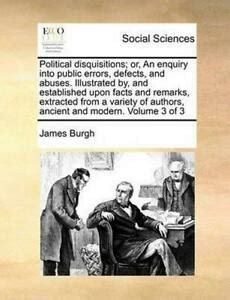A Quote by Bertrand Russell
The argument against the persecution of opinion does not depend upon what the excuse for persecution may be. The argument is that we none of us know all truth, that the discovery of new truth is promoted by free discussion and rendered very difficult by suppression.
Related Quotes
If you think your belief is based upon reason, you will support it by argument rather than by persecution, and will abandon it if the argument goes against you. But if your belief is based upon faith, you will realize that argument is useless, and will therefore resort to force either in the form of persecution or by stunting or distorting the minds of the young in what is called 'education.'
'In his celebrated book, 'On Liberty', the English philosopher John Stuart Mill argued that silencing an opinion is "a peculiar evil." If the opinion is right, we are robbed of the "opportunity of exchanging error for truth"; and if it's wrong, we are deprived of a deeper understanding of the truth in its "collision with error." If we know only our own side of the argument, we hardly know even that: it becomes stale, soon learned by rote, untested, a pallid and lifeless truth.'
Persecution always says, 'I know the consequences of your opinion better than you know them yourselves.' But the language of toleration was always amicable, liberal, and just: it confessed its doubts, and acknowledged its ignorance ... Persecution had always reasoned from cause to effect, from opinion to action, [that such an opinion would invariably lead to but one action], which proved generally erroneous; while toleration led us invariably to form just conclusions, by judging from actions and not from opinions.
The Jewish question exists wherever the Jews live, however small their number. Where it does not exist it is imported by Jew immigrants. We naturally go where we are not persecuted, and, still persecution is the result of our appearance...By persecution we cannot be exterminated...the strong Jews turn proudly to their race when persecution bursts out. Entire branches of Judaism may disappear, break away; the tree lives.
It is commonly said that if rational argument is so seldom the cause of conviction, philosophical apologists must largely be wasting their shot. The premise is true, but the conclusion does not follow. For though argument does not create conviction, the lack of it destroys belief. What seems to be proved may not be embraced; but what no one shows the ability to defend is quickly abandoned. Rational argument does not create belief, but it maintains a climate in which belief may flourish.
The notion that somehow or another they'll (Iran) put it in a picnic basket and hand it to some terrorist group is merely an argument that may be convincing to some people who don't know anything about nuclear weapons. I don't find that argument very credible, I'm not sure that people who make it even believe in it. But it's a good argument to make if you have no other argument to make. The fact of the matter is, Iran has been around for 3000 years, and that is not a symptom of a suicidal instinct.































